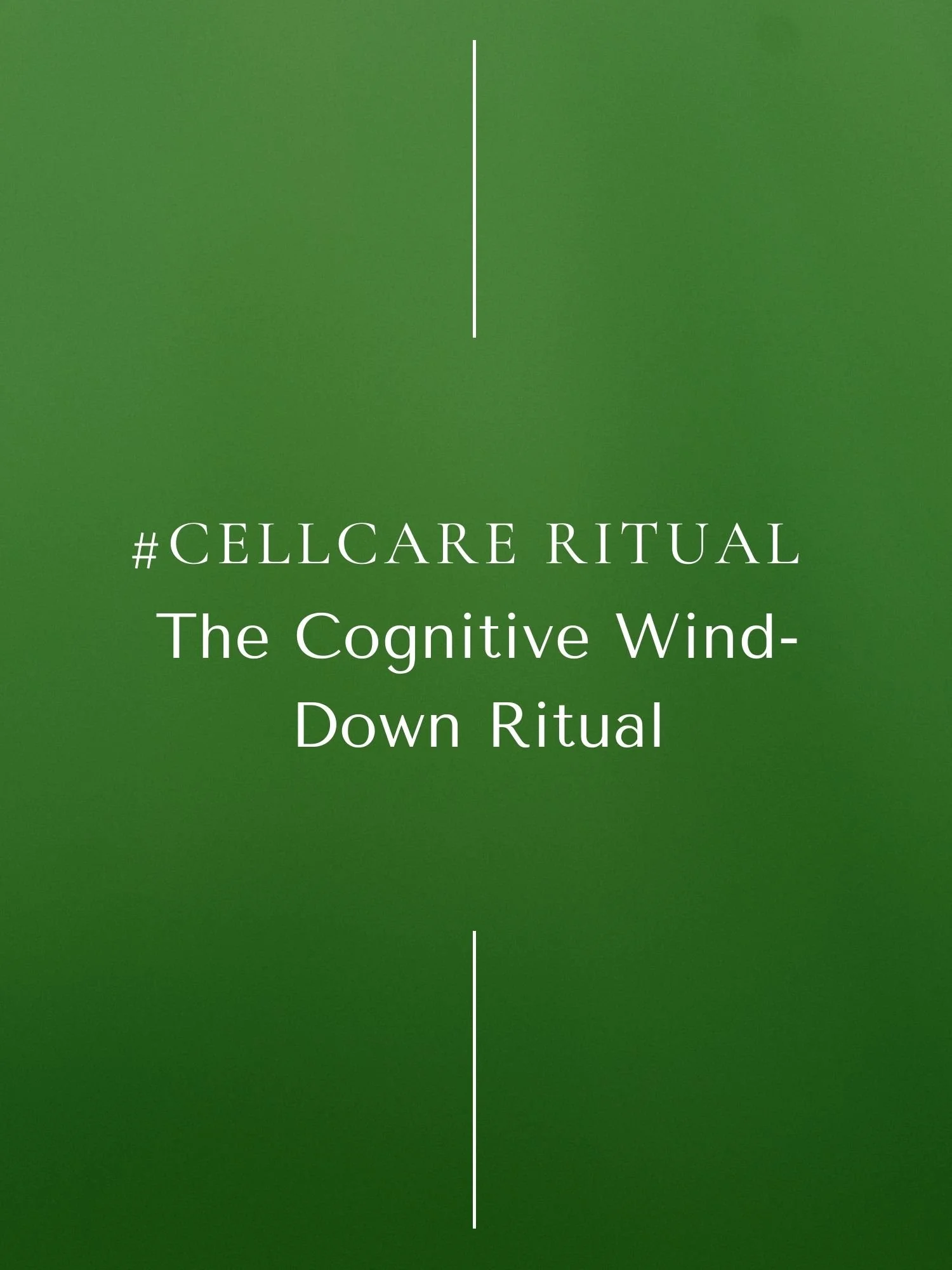Restorative Recovery | How Quality Sleep Renews Mind, Body, and Cellular Health
What if Sleep Could Become Your Superpower?
Kyle, a college student, stayed up late studying and scrolling on his phone, relying on caffeine to make it through the day. His grades slipped, workouts suffered, and he felt constantly drained. He wondered why he could never seem to perform at his best.
What Kyle didn’t realize is that sleep isn’t passive—it’s an active process of restoration for the brain, body, and cells. Every hour of quality sleep signals repair, balances hormones, clears brain toxins, and strengthens immune function. Over time, poor sleep erodes resilience, while consistent restorative rest rebuilds energy, focus, and health.
Now imagine if Kyle prioritized his sleep—setting a consistent bedtime, limiting caffeine, and creating a calm environment. Suddenly, his nights became a foundation for optimal wellbeing. His brain consolidated memories, his muscles repaired efficiently, and his body recovered fully from daily stress.
In The Anatomy of Wellbeing, Chapter 6: Restorative Recovery, Dr. Monisha Bhanote explains how intentional sleep practices support cognitive clarity, emotional resilience, and cellular health.
🎧 Chapter 6: Restorative Recovery is available now in the audiobook. [Listen on Spotify, Apple Books, Hoopla, Amazon.]
What Makes Sleep So Transformative?
Sleep as Cellular Repair
Every night, the body engages in vital repair. Deep sleep promotes tissue regeneration, growth hormone release, and immune system support, while REM sleep processes emotions and consolidates memory.
The Science of Sleep Stages
Sleep is a dynamic cycle of NREM and REM stages. Light sleep prepares the body to rest, deep sleep heals tissues and restores energy, and REM sleep supports emotional balance and learning. Completing multiple full cycles each night ensures true restorative recovery.
Sleep Hygiene Matters
Quality sleep depends on intentional habits. Limiting caffeine, avoiding late-night screens, and creating a cool, dark, and quiet environment allows the body to engage fully in restorative processes. Pre-bedtime rituals like journaling, stretching, or sipping calming teas can further enhance rest.
Why We Need Restorative Sleep in Modern Life
In today’s fast-paced, screen-heavy world, chronic sleep disruption is common—but its effects ripple through the body and brain. Prioritizing restorative recovery helps you:
Support memory, learning, and cognitive function
Reduce stress and emotional volatility
Strengthen immunity and cardiovascular health
Promote tissue repair and muscle recovery
Lower risk of chronic disease and neurodegeneration
We are reminded, sleep isn’t just rest—it’s a golden chain connecting your mind, body, and cells.
Listen to The Anatomy of Wellbeing Wherever You Are
Imagine a guide reminding you that sleep is more than downtime—it’s a powerful tool for restoration, performance, and longevity. That’s the promise of The Anatomy of Wellbeing.
Start listening today on your favorite platform:
And if you’d like to share your sleep journey, connect with me on Instagram @drbhanote using #CellCare—because true wellbeing begins with the rest we give ourselves each night.
The information on this website has not been evaluated by the Food & Drug Administration or any other medical body. We do not aim to diagnose, treat, cure or prevent any illness or disease. Information is shared for educational purposes only. You must consult your doctor before acting on any content on this website, especially if you are pregnant, nursing, taking medication, or have a medical condition. Our content may include products that have been independently chosen and recommended by Dr. Monisha Bhanote and our editors. We may earn a small commission if you purchase something mentioned in this article.
You may also like:
by Dr. Monisha Bhanote
✅ EVIDENCE-INFORMED REVIEWED ARTICLE














